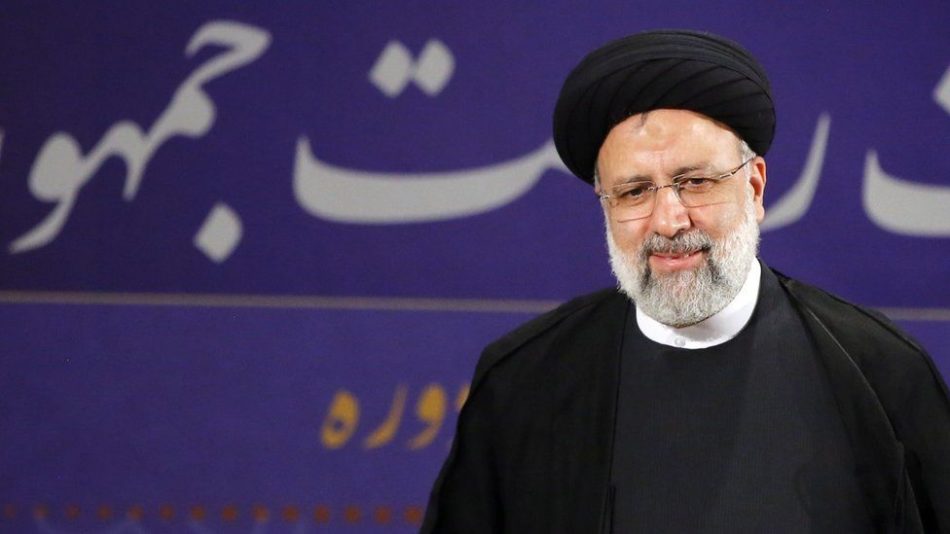Iran’s presidential election was framed as a religious and national duty with heavy stress on participation. Iran’s Supreme Leader, Ayatollah Ali Khamenei, made three speeches prior to the polling to put as much pressure on the voters as his position allows.
The result was a foregone conclusion. The stage had already been set and actors choreographed.
Now, 60-year-old Ebrahim Raisi, a mid-ranking figure in the hierarchy of Iran’s clergy who has served as a prosecutor for most of his career and is under UN and US sanctions, is at the helm. In 2017, he lost by a landslide to President Hassan Rouhani.
Human rights lawyer and activist, Shadi Sadr, says Raisi “should be behind bars,” not a president.
Raisi stands accused by human rights organizations of being involved in the so-called “death squad” that ordered the extrajudicial executions of thousands of political prisoners in 1988.
At the time, the 28-year-old Raisi was the deputy prosecutor for Tehran. The following year he was promoted to chief prosecutor.
The US also sanctioned him for being involved in the “brutal crackdown on Iran’s Green Movement protests” after the 2009 elections.
In September 2020, a group of UN human rights experts warned Iran that the 1988 violations may amount to “crimes against humanity”.
Raisi defenders deny all accusations.
Many assumed that Raisi was being groomed for the leadership post when he was elevated to the Custodian of the Shia financial foundation, Astan-Quds Razavi five years ago, and then in 2019 to Judiciary Chief.
He had support not just from Khamenei, who comes from the same northwestern city of Mashhad, but also from his ultra-hardline father-in-law, Ahmad Alamolhoda, the Grand Imam of Imam Reza shrine in the holy city.
Yet it is difficult to be sure about that premise. Khamenei could be making tactical moves to reduce Raisi’s popularity. As the head of the judiciary and now the president, Raisi runs the risk of falling out of public favor. Khamenei could then prepare his son, Mojtaba, for leadership during Raisi’s two terms.
Some analysts believe that with Raisi, Iran is either moving towards a one party system or changing the political structure from a presidential to a parliamentary system, “replacing the role of the Supreme Leader with a multi-person council”. But the political structure of Iran’s Islamic Republic has its own logic based firmly around the ultimate power of the Supreme Leader which is guarded by the Islamic Revolutionary Guard Corps (IRGC) and reinforced by the Guardian Council.
It is more like a parallel of a one-party system; it doesn’t need to turn into one.
It also has its parliament filled with hardliners and a planned Leadership Council. With the presidency in place, hardliners control all power centers now.
The above views may stem from the abysmal performance of the reformists in these elections. Yet the reformist leaders have only ever wanted reform from within the establishment, and the system has already successfully sidelined them.
In these elections, reformists bickered extensively about participation. One camp, led by the former head of the Green Movement, Mir-Hossein Mousavi, decided to boycott with wide-ranging support, and the other, led by the outspoken reformist Mehdi Karoubi, thought it was best to participate and vote for Abdulnasser Hemmati.
The two prominent disqualified reformist candidates, Mostafa Tajzadeh and Mohammad Aref, also chose two different paths. The former decided to boycott and the latter was one of the first to arrive at the polling station.
In the 1997, 2009 or indeed 2013 and 2017 elections, when all non-hardline groups had united, they achieved results. Yet their leaders never challenged the overriding power of the Supreme Leader. And the regime’s suppression ensured that half of their members were behind bars.
According to IranPoll, the support base for the reformists has shrunk by about 8 percent since 2017, while the support base for the conservatives has grown by 4 percent.
With a mandate of 63 per cent, Raisi will no doubt further entrench the hardline theocratic establishment, advance Iran’s Shia influence in the region and support the expansion of IRGC encroachments across the Middle East. He will enhance Iran’s relations with China and Russia.
While barred from travel to Western countries, Raisi may harden his rhetoric but will nevertheless take the leader’s cue for following through with the Iran nuclear deal with the aim of removing all sanctions on the IRGC.
In that endeavor, the new president in Iran may clash with the new US president who has stressed human rights sanctions should remain in place.
“The main victors of the elections are Iranians,” said Ayatollah Khamenei.
Yet those Iranians who have sacrificed their lives and livelihood in their fight for basic freedoms are the main losers. They will now have a much tougher fight on their hands.
*The writer is Dr. Massoumeh Torfeh is a Research Associate at the London School of Economics and Political Science specializing in Iran and Afghanistan. Formerly she was a BBC journalist and UN spokesperson and director of communication.
June 20, 2021
The viewpoints expressed by the authors do not necessarily reflect the opinions, viewpoints and editorial policies of Aequitas Review.


